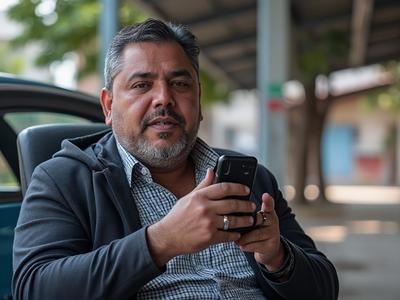
Costa Rica Eases Dairy Import Restrictions Amid U.S. Trade Negotiations
The removal of non-tariff barriers allows American dairy products greater access to the Costa Rican market, drawing mixed reactions from local producers.
The Costa Rican government has recently removed a significant non-tariff barrier that had been a point of contention in trade relations with the United States, allowing American dairy products to enter the country.
This decision has been met with enthusiasm from U.S. officials while eliciting concern from local dairy producers in Costa Rica.
The U.S. administration expressed satisfaction with this development, framing it as a win for agricultural interests, with officials emphasizing the potential for U.S. producers to access a market valued at approximately $130 million in Costa Rica.
The U.S. Secretary of Agriculture highlighted the agreement’s importance in facilitating the registration process for American dairy processing plants.
The specific regulatory change involved a resolution from Costa Rica's National Animal Health Service (SENASA) which eliminated a previously required questionnaire for the registration of U.S. dairy plants.
This modification reduces the timeline for review and approval of dairy facilities from 90 days to just 30 days.
Under the new system, Costa Rica has already approved its first U.S. dairy cooperative, a significant step in increasing American dairy imports.
Local dairy producers, represented by the National Dairy Producers Chamber, responded to the announcement with skepticism and outrage, citing a lack of consultation prior to the decision.
They have expressed fears regarding the implications of these imports for domestic agriculture and voiced concerns about what they see as ongoing pressures impacting their industry from global trade agreements, particularly arguing that such health regulations should not be traded off against tariff pressures.
The pressure on Costa Rica's dairy sector comes amidst existing challenges, including a reported 143% increase in cheese imports from the United States since the enactment of the Central America-Dominican Republic Free Trade Agreement (CAFTA-DR).
While the Costa Rican government under President Rodrigo Chaves has not made an official statement on this specific decision, it has been engaged in negotiations with the United States aimed at removing trade barriers in exchange for the potential lifting of a 10% tariff imposed on Costa Rican goods.
In related developments, the Catholic Church in El Salvador has called for President Nayib Bukele to end the state of emergency enacted in response to gang violence, arguing that it has led to widespread human rights abuses.
Moreover, regulatory changes in Costa Rica have also recently been approved, including updated rules concerning medical leaves and new tax burdens on electric vehicles, reflecting the ongoing shifts in both health and economic policies within the region.
This decision has been met with enthusiasm from U.S. officials while eliciting concern from local dairy producers in Costa Rica.
The U.S. administration expressed satisfaction with this development, framing it as a win for agricultural interests, with officials emphasizing the potential for U.S. producers to access a market valued at approximately $130 million in Costa Rica.
The U.S. Secretary of Agriculture highlighted the agreement’s importance in facilitating the registration process for American dairy processing plants.
The specific regulatory change involved a resolution from Costa Rica's National Animal Health Service (SENASA) which eliminated a previously required questionnaire for the registration of U.S. dairy plants.
This modification reduces the timeline for review and approval of dairy facilities from 90 days to just 30 days.
Under the new system, Costa Rica has already approved its first U.S. dairy cooperative, a significant step in increasing American dairy imports.
Local dairy producers, represented by the National Dairy Producers Chamber, responded to the announcement with skepticism and outrage, citing a lack of consultation prior to the decision.
They have expressed fears regarding the implications of these imports for domestic agriculture and voiced concerns about what they see as ongoing pressures impacting their industry from global trade agreements, particularly arguing that such health regulations should not be traded off against tariff pressures.
The pressure on Costa Rica's dairy sector comes amidst existing challenges, including a reported 143% increase in cheese imports from the United States since the enactment of the Central America-Dominican Republic Free Trade Agreement (CAFTA-DR).
While the Costa Rican government under President Rodrigo Chaves has not made an official statement on this specific decision, it has been engaged in negotiations with the United States aimed at removing trade barriers in exchange for the potential lifting of a 10% tariff imposed on Costa Rican goods.
In related developments, the Catholic Church in El Salvador has called for President Nayib Bukele to end the state of emergency enacted in response to gang violence, arguing that it has led to widespread human rights abuses.
Moreover, regulatory changes in Costa Rica have also recently been approved, including updated rules concerning medical leaves and new tax burdens on electric vehicles, reflecting the ongoing shifts in both health and economic policies within the region.










